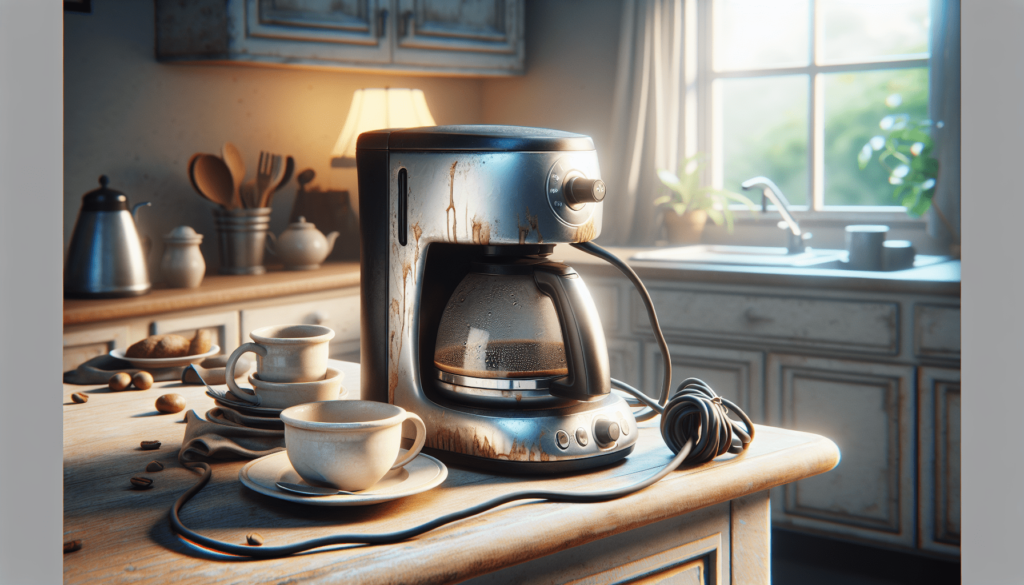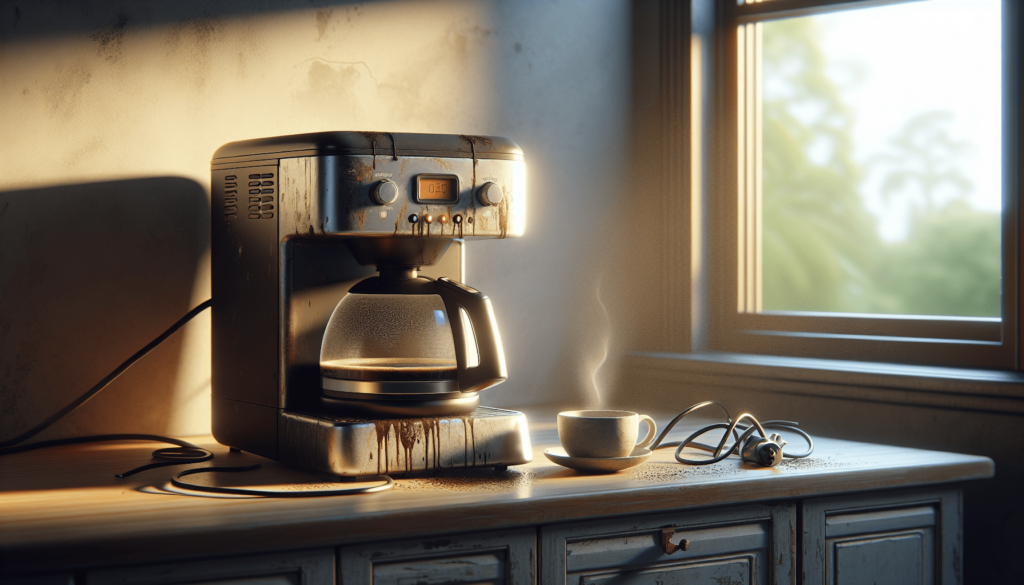Have you ever wondered, “When should I replace my coffee maker?” It’s a question that many coffee enthusiasts contemplate as their trusty machines age. Like any other appliance in your kitchen, coffee makers have a lifespan, and knowing the signs that indicate it’s time for a replacement can save you from a bad cup of coffee.

Understanding the Lifespan of a Coffee Maker
A typical coffee maker’s lifespan varies depending on the type and brand, but on average, you should expect about 5 years of faithful service. However, some high-end models can last up to 10 years if taken care of properly. It’s essential to remember that the actual longevity of your machine heavily depends on usage, maintenance, and care.
Type of Coffee Maker and Its Lifespan
Different types of coffee makers have varying lifespans. Here’s a quick look at a few popular types and their expected lifespans:
| Type of Coffee Maker | Average Lifespan |
|---|---|
| Drip Coffee Maker | 5-7 years |
| Single-Serve Pod Maker | 3-5 years |
| Espresso Machine | 8-10 years |
| French Press | 3-5 years |
| Cold Brew Maker | 4-5 years |
These estimates can change based on how often you use and maintain your coffee maker.
Signs It’s Time to Replace Your Coffee Maker
Even the best coffee maker will eventually show signs of aging. Here are some key indicators that suggest it might be time to bid farewell to your current machine:
Inconsistent Brewing Time
If your coffee maker starts taking much longer or shorter than usual to brew your coffee, this inconsistency is a sign that the internal components may be wearing out. Consistent brewing time ensures that your coffee is brewed at the ideal temperature for the right amount of time, impacting the flavor.
Poor Coffee Quality
One clear sign of a deteriorating coffee maker is a noticeable decline in coffee quality. If your coffee starts tasting bitter or weak despite using the same brand and quantity of beans, it might be time for a replacement. The machine may not be capable of heating water to the optimal brewing temperature anymore.
Leaks and Malfunctions
If you notice water leaking from your coffee maker or if it frequently malfunctions, these are significant red flags. Leaks can lead to more severe electrical issues and can potentially be a fire hazard. Similarly, frequent malfunctions can result in an inconsistent brewing experience.
Outdated Features
Coffee maker technology continuously evolves, with new features being introduced regularly. If your machine lacks modern capabilities such as programmable settings, auto shut-off, or brew strength control, upgrading to a newer model might improve your coffee experience.
Advantages of Upgrading Your Coffee Maker
Upgrading your coffee maker can offer several benefits beyond just making your morning cup more enjoyable. Here are a few reasons why you might consider replacing your old coffee maker:
Better Brewing Technology
Newer coffee makers often come with advanced features like customizable brew temperatures, bloom cycles for pour-over, and better filtration systems, which can significantly enhance the flavor of your coffee.
Energy Efficiency
Modern coffee makers are often more energy-efficient, helping you save on your electricity bills. Features like auto shut-off ensure that the machine doesn’t stay on longer than necessary, reducing energy consumption.
Enhanced Convenience
With programmable timers and smart technology integrations, new coffee makers offer unmatched convenience. Imagine waking up to the aroma of freshly brewed coffee without having to lift a finger!
Improved Aesthetics
A sleek, new coffee maker can be a stylish addition to your kitchen. Many modern machines are designed with aesthetics in mind, complementing the look of your kitchen space.
Tips for Extending the Life of Your Coffee Maker
While it’s inevitable that your coffee maker will eventually need replacing, you can extend its lifespan with proper care and maintenance. Here are some tips to help you get the most out of your coffee maker:
Regular Cleaning
Regularly clean your coffee maker to prevent the buildup of coffee oils and mineral deposits. Descaling with a vinegar solution or a commercial descaler every few months can help maintain optimal performance.
Use Quality Water
Using filtered water can reduce the amount of mineral buildup inside your coffee maker, leading to better tasting coffee and a longer-lasting machine.
Follow Manufacturer’s Instructions
Always follow the manufacturer’s instructions for use and maintenance. This ensures that you’re not unintentionally causing wear and tear on your coffee maker.
Avoid Overfilling
Never overfill the water reservoir beyond the maximum indicated level. Overfilling can cause leakage and pressure issues, which can damage the machine over time.

When It’s Not Worth Repairing
Sometimes, repairing an old coffee maker might seem like a cost-effective solution. However, there are situations when replacing it is a better choice.
Cost of Repair vs. Replacement
If the cost of repairing your coffee maker is more than half the cost of a new one, it’s usually more sensible to invest in a new machine. Repairs might offer a temporary fix, but they can’t extend the lifespan indefinitely.
Availability of Parts
For older models, parts may no longer be available. Even if you can find the parts, the cost and effort involved in replacing them might not be worth it compared to buying a new coffee maker with a warranty.
Conclusion
Your coffee maker is a crucial part of your daily routine, and knowing when to replace it can ensure you always enjoy a great cup of coffee. By recognizing the signs of wear and tear, understanding the lifespan of various types, and considering the benefits of new technology, you can make an informed decision about when to replace your coffee maker. Remember, proper maintenance can extend the life of your machine, but eventually, all good things must come to an end and give way to something new and improved.
